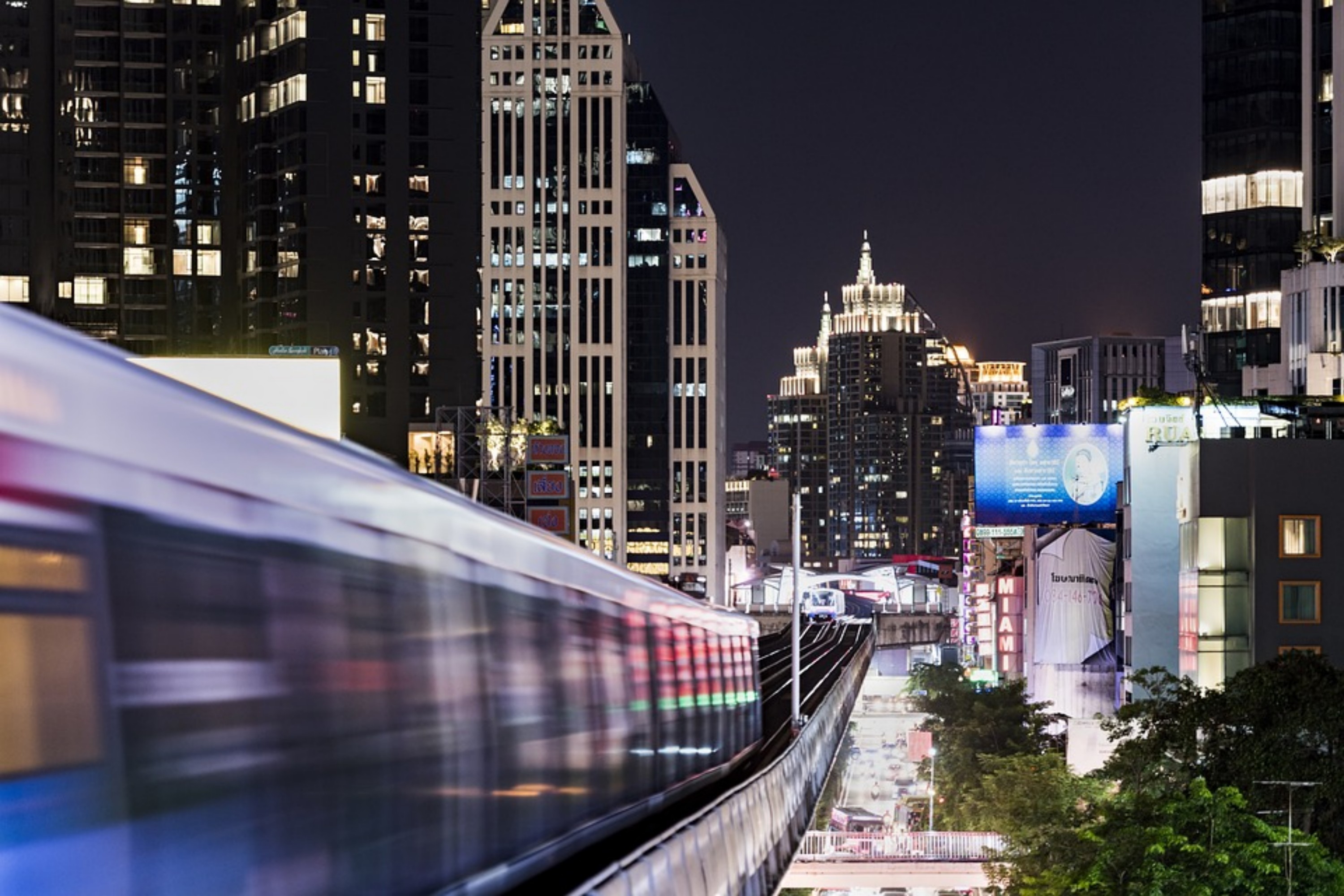Political stand-off in Thailand over urban rail contract reignites concerns over high public transport costs
Sign up now: Get insights on Asia's fast-moving developments

The parliamentary clash has also resurfaced concerns over the prices of Bangkok's rapid rail transit fares.
PHOTO: PIXABAY
Follow topic:
BANGKOK - Pushback against a proposal to extend a public-private partnership contract for a key section of Bangkok's skytrain has further underlined fractures in Thailand's coalition government.
The parliamentary clash has also resurfaced concerns over the prices of Bangkok's rapid rail transit fares, which remain unaffordable for a number of commuters.
The extension proposal by the Bangkok Metropolitan Administration (BMA) and the Interior Ministry will lengthen the current contract for the Green Line skytrain for another 30 years after it expires in 2029. It also asks for the maximum fares to be set at 65 baht (S$2.70) per trip, up from the current 59 baht.
The Green Line, also known as the Sukhumvit Line, services stations in Bangkok's centre district such as Siam and Thong Lor, and stretches about 50km to the neighbouring province of Samut Prakan. The BMA owns the Green Line while private firm Bangkok Mass Transit System is the operator for the line.
Bangkok currently has more than 10 skytrain contracts, also known as concessions, with various line owners and operators fixing different fare rates, station entry fees and operation periods.
However, the Transport Ministry, under coalition partner Bhumjaithai Party, is opposing the extension and fare increase. And several party ministers, including Bhumjaithai party leader Anutin Charnvirakul, who is also Deputy Prime Minister and Public Health Minister, and Transport Minister Saksayam Chidchob, caused a stir when they absented themselves from a Cabinet meeting earlier this month that planned to discuss the issue.
The Bhumjaithai Party, the second-largest coalition member, had proposed that the maximum fare be sharply reduced so that low-income commuters can use the electric train, reported The Nation.
Opposition Move Forward Party is also against the plans to extend the contract, saying this should be left to the next Bangkok governor and new Cabinet to decide, as gubernatorial and general elections are expected to take place soon.
The decision over the Green Line contract has been put on hold for now, but political observer Punchada Sirivunnabood said the political stand-off is yet another show of the cracks within the coalition government led by Prime Minister Prayut Chan-o-cha, which has in recent months been plagued by in-fighting and factional disputes.
"The issue of public transport fares could show up again during the no-confidence vote if it is not cleared up by then," said Dr Punchada, referring to the looming parliamentary censure vote the opposition is planning against Mr Prayut, likely to be held in the next few months.
Politics aside, observers point to a bigger issue raised by the tension within the coalition bloc of the high prices of rapid rail transit tickets, which remain out of reach of the average commuter.
"The most important issue for the people is the price of commuting," said urban studies researcher Petchpilai Lattanan.
The lecturer at Chualongkorn University's Faculty of Arts said the proposed Green Line maximum fare of 65 baht would be a sizeable portion of the daily earnings of someone on minimum wage, which is currently about 340 baht a day in Bangkok.
An estimated 700,000 commuters used the skytrain daily before the pandemic. But many blue-collar workers rely on much cheaper motorcycle taxis or buses for their commutes.
"Those who travel by skytrain are most likely white-collar workers or students who come from middle-class families," added Dr Petchpilai.
She estimates that one would spend 100 to 150 baht a day commuting on the skytrain, which is considered high for the average commuter.
Dr Sumet Ongkittikul from the Thailand Development Research Institute (TDRI) said the different contracts and pricing tables create a "huge burden" for Bangkok commuters.
"If you travel within one line, it is not that expensive. But once you change lines, even within the same operator, your fare can double to 100 baht," added Dr Sumet, research director of TDRI's transport and logistics policy section.
To solve this problem and lower train fares, the government must bring line owners and operators together to discuss how to streamline the fares for all routes in the electric mass transit system, he said.
"They cannot be isolated lines. They have to be part of a whole system that works together to provide transport to the people in Bangkok."

